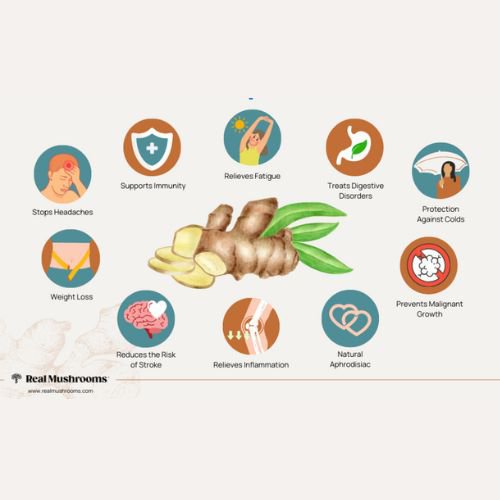Herbal supplements offer a natural approach to enhancing health and treating various conditions, but knowing what to look for and how to use them safely is crucial. This guide provides a detailed exploration of herbal supplements, emphasizing the importance of informed choices based on scientific evidence and expert advice.
We cover everything from the therapeutic benefits and potential risks to the crucial steps for verifying product purity and effectiveness. Armed with this knowledge, you can integrate herbal supplements into your wellness routine confidently and safely.
In This Article
- What Are Herbal Supplements?
- How Do Herbal Supplements Work?
- Are Herbal Supplements Safe to Use?
- What Are the Benefits of Using Herbal Supplements?
- Case Studies of Successful Use of Herbal Supplements
- What Are the Potential Side Effects of Herbal Supplements?
- How Do I Choose a Quality Herbal Supplement?
- Can I Take Multiple Herbal Supplements at the Same Time?
- Are There Any Restrictions on Who Can Use Herbal Supplements?
- Can Herbal Supplements Interact With My Prescription Medications?
- Are There Any Specific Herbal Supplements Recommended for Certain Health Conditions?
- How Should I Store My Herbal Supplements?
- Evaluate Herbal Supplements Effectively
What Are Herbal Supplements?
According to the University of Rochester Medical Center, herbal supplements are derived from plants and are used either to treat ailments or to enhance overall health.[1] These products, also known as botanical products or phytomedicines, are made from plant materials intended for internal use.
In contrast to prescription and over-the-counter medications, which may also originate from plant sources but consist only of purified ingredients regulated by the Food and Drug Administration (FDA), herbal supplements typically contain whole plants or parts of plants. These herbs are plants or plant parts that are used for their scent, flavor, and/or therapeutic properties.
Herbal supplements are available in various forms, such as dried, chopped, powdered, capsule, or liquid. They can be ingested as pills, taken as powders, used in a concentrated liquid form known as tinctures, brewed as teas, or applied topically in the form of gels, lotions, or creams. Additionally, they can be added to bath water for therapeutic benefits.
One popular type of herbal supplement is the mushroom supplement.
According to Harvard’s Nutrition Source, bell-shaped mushrooms have been valued in traditional and folk medicine for thousands of years for their healing and cleansing properties. They are rich in vitamins, minerals, and antioxidants, which can help balance your body’s immune response, support heart health, and more. [2]
Turkey tail mushroom, for instance, is a type of functional mushroom that is known for its immune-boosting properties.
According to the University of California, Los Angeles (UCLA) Health, modern studies have validated that turkey tail mushrooms contain compounds that impact the immune system. [3]
Specifically, these compounds serve as nonspecific immune modulators, which means they generally either enhance or diminish immune responses. In the case of turkey tail mushrooms, they support immune functions.
A 2012 clinical trial revealed that breast patients with malignant growth who consumed powdered turkey tail mushroom capsules regained their immune function more swiftly post-radiation therapy compared to those who did not. [4]
Further research on breast patients indicated that these mushrooms might also enhance the effectiveness of chemotherapy treatments.
Additionally, these compounds are noted for their potential effects on abnormal cell growth.
How Do Herbal Supplements Work?
Herbal supplements work by providing your body with natural compounds that can support and enhance your health.
These compounds can interact with your body in various ways, depending on the type of supplement and the specific ingredients it contains.
Turkey tail mushrooms contain precursors to the proteoglycans polysaccharide peptide (PSP) and polysaccharide-K (Krestin, PSK). Notably, PSK is frequently prescribed to gastric patients in Japan, as noted in research cataloged by the National Center for Biotechnology Information (NCBI). [5]
The immune-supporting properties of these mushrooms are attributed to their polysaccharide content. These compounds work by stimulating the activity of certain cells and proteins in your immune system, helping your body to more effectively fight off illnesses and infections.
Are Herbal Supplements Safe to Use?
When it comes to the safety of herbal supplements, it’s important to remember that ‘natural’ doesn’t always mean ‘safe.’ However, with careful selection and proper use, herbal supplements can be a safe addition to your health regimen.
Integrative medicine specialist Melissa Young, MD, highlights a crucial aspect regarding the regulatory status of these products: [6]
“Herbal supplements aren’t regulated by the U.S. Food and Drug Administration (FDA) with the same standards as pharmaceutical drugs. In addition, if you’re living with any health concerns or if you’re taking any medications, you’ll want to be especially careful about potential drug-herb interactions. I always advise talking with a healthcare provider before taking any kind of supplements, especially herbs.”
To further ensure safety, it’s crucial to choose high-quality supplements from reputable brands. This step helps minimize the risk of contamination and ensures that the supplements contain the ingredients listed on the label.
Also, starting with a low dose and gradually increasing it is advisable while monitoring your body’s response. This approach allows you to gauge how your body reacts to the supplement and adjust usage accordingly, avoiding potential adverse effects.
This is particularly important with potent supplements like turkey tail mushrooms, which have powerful immune-boosting properties. Starting slow allows your body to adjust and helps to minimize any potential side effects.
What Are the Benefits of Using Herbal Supplements?
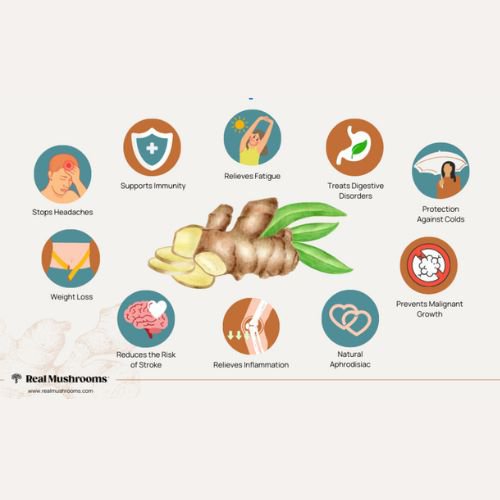
Herbal supplements offer a natural way to support your overall health and well-being. They are derived from plants, which have been used for thousands of years for their healthy properties.
Here are some key benefits of using herbal supplements:
Nutrient-Rich
Herbal supplements are packed with vitamins and minerals, including potassium and phosphorus, and other nutrients that your body needs to function optimally.
Below are examples of herbal supplements that contain potassium and phosphorus (15).
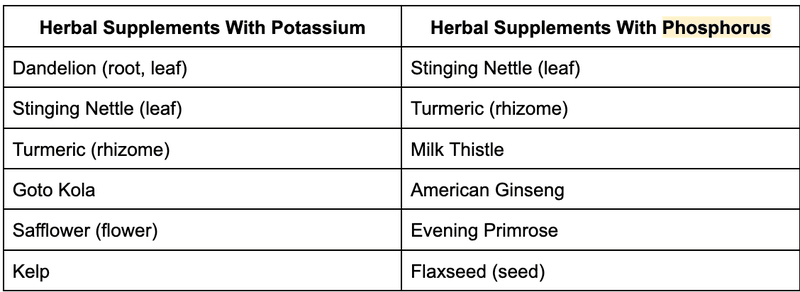
The table above provides a concise overview of herbal supplements categorized by their content of two essential minerals: potassium and phosphorus.
Notably, stinging nettle and turmeric appear in both categories, highlighting their nutrient density. This information is crucial for individuals seeking to address specific dietary needs or health goals through herbal supplementation.
Supports Immune System
According to a research paper by David S. Senchina, an Associate Professor specializing in medical microbiology and kinesiology at Drake University in Des Moines, Iowa, herbal supplements, particularly Ginseng and Echinacea, may potentially improve immune function.[7]
The paper discusses how these supplements are believed to possess immunomodulatory effects, which could benefit athletes by managing immune responses under the physical stress of training and competition.
Ginseng is noted for its potential to enhance immune function, while Echinacea is commonly used to prevent and treat respiratory infections, indicating its role in immune defense.
You can explore the complexities and potential benefits of herbal supplements on immune function, along with their interactions and variability, by delving into the research paper by David S. Senchina et al. This comprehensive examination underscores the importance of conducting well-designed studies to better understand these effects within the athletic community.
Promotes Digestive Health
Some herbal supplements can be used to regulate digestion and promote gut health.
Below is a table showing how specific herbs contribute to these benefits:
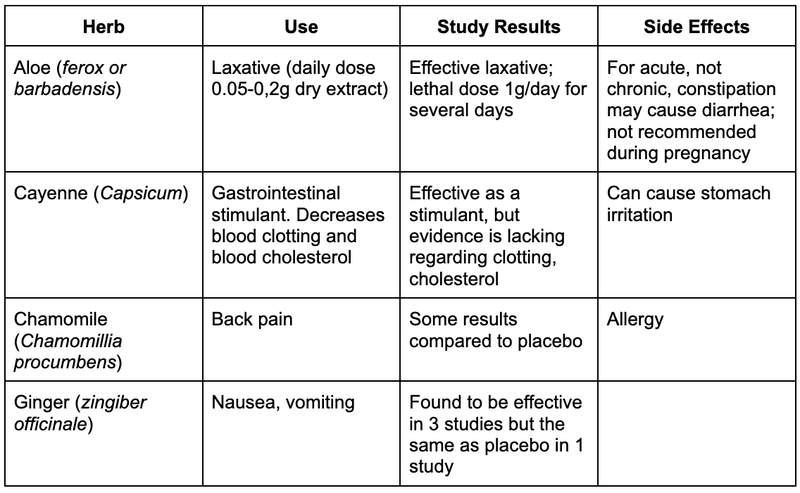
This table illustrates not only the digestive benefits these herbs can offer but also underscores the importance of being mindful of their appropriate use and potential adverse effects.
Natural and Sustainable
Herbal supplements are made from natural ingredients and are often more sustainable than synthetic supplements. They are grown and harvested in a way that respects the environment, ensuring you can feel good about what you’re putting in your body.
Case Studies of Successful Use of Herbal Supplements
In recent times, there has been a growing interest in the use of herbal supplements as part of daily health management and disease prevention strategies.
Educational institutions and health organizations are increasingly studying the impact and benefits of these natural remedies, often used in conjunction with, or as alternatives to, conventional medicines.
Here are some case studies that illustrate the successful integration and benefits of herbal supplements in various settings.
Qatar College Students and Herbal Supplements
A comprehensive study conducted at Weill Cornell Medical College in Qatar and the College of the North Atlantic in Qatar assessed the usage of herbal and nutritional supplements among college students. [8]
The study revealed that nearly half of the students (49.6%) had used dietary supplements at some point, with 32.7% being current users.
The most commonly used supplements included vitamins, proteins, and specific herbal supplements like ginger and mint. These findings highlight the substantial role that supplements play in the health routines of young adults, particularly in enhancing everyday health and managing minor health issues.
The Qatar study also explored students’ perceptions of the safety and effectiveness of herbal supplements compared to conventional medications.
A significant number of students regarded supplements as safer and more effective, especially for non-critical conditions such as weight management and gastrointestinal issues. This preference underscores the importance of herbal supplements in providing alternative health solutions that resonate with the younger demographic, who often seek natural and less invasive treatment options.
Herbal Supplement Use Among U.S. Adults
A significant study on the prevalence and predictors of herbal medicine use among adults in the United States provides insights into the successful integration of herbal supplements into everyday health management and treatment strategies. [9]
Conducted across various demographics, the study sheds light on how herbal supplements are perceived and utilized within diverse populations.
The study found that about one-third of the adult population reported using herbal medicine, indicating a substantial reliance on these supplements for health-related purposes. This high prevalence reflects the growing trust and confidence in herbal remedies as alternatives or complements to conventional medical treatments.
Adults with chronic conditions such as arthritis, malignant growth, stroke, and heart disease were notably more likely to use herbal supplements, suggesting a targeted approach to managing these ailments.
Interestingly, the study highlighted that higher educational levels and older age were significant predictors of herbal supplement use. This trend suggests that more educated and older adults are more inclined to incorporate herbal treatments into their health regimes, possibly due to increased health awareness or dissatisfaction with conventional treatments.
These case studies demonstrate the successful and beneficial use of herbal supplements in a specific educational context, reflecting a broader acceptance and integration of natural health products into everyday health management.
What Are the Potential Side Effects of Herbal Supplements?
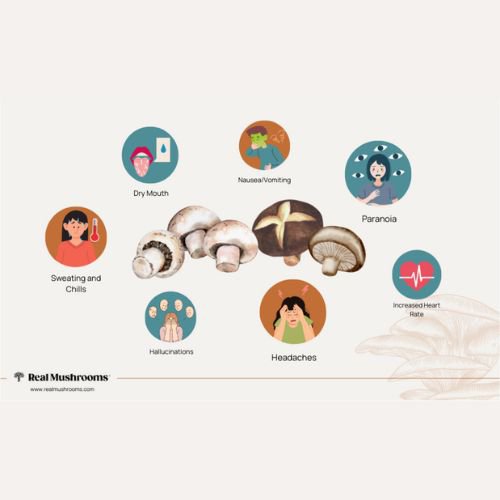
While herbal supplements are generally considered safe, it’s important to be aware that they can cause side effects in some people.
These side effects can range from mild to severe, depending on various factors such as the type of supplement, dosage, individual health status, and whether the supplement is taken in combination with other substances.
Mild Side Effects
These are usually temporary and may include symptoms like nausea, headaches, and digestive issues.
For instance, some people might experience mild stomach discomfort when they first start taking turkey tail mushroom supplements. This is typically due to the high fiber content and usually subsides as your body adjusts to the supplement.
Allergic Reactions
Though rare, some individuals might have allergic reactions to certain herbal supplements.
Symptoms can include skin rashes, itching, swelling, and, in severe cases, difficulty breathing. If you suspect you’re having an allergic reaction, it’s crucial to stop taking the supplement and seek medical attention immediately.
Interactions With Medications
Herbal supplements can interact with certain medications, altering their effectiveness.
For example, turkey tail mushrooms have immune–boosting properties, which might interfere with immunosuppressant drugs.
Therefore, it’s essential to consult with a healthcare provider before starting any new supplement regimen, especially if you’re currently on medication.
Overdose
Just like conventional medicines, taking too much of a herbal supplement can lead to negative effects.
Always stick to the recommended dosage and consult with a healthcare provider if you’re considering taking a higher dose.
How Do I Choose a Quality Herbal Supplement?
Below are a few factors to keep in mind so you can make an informed decision that aligns with your health goals.
Check the Ingredients
Always read the label carefully. The ingredients should be natural and free from artificial additives.
For instance, if you’re considering a turkey tail mushroom supplement, the label should list ‘turkey tail mushroom’ as the main ingredient, not a vague term like ‘mushroom complex.’
Look for Certifications
Certifications can provide an added layer of trust. They indicate that the product has been tested and meets certain quality standards.
For instance, products labeled as Certified Organic are guaranteed to be free from harmful pesticides and chemicals.
Consider the Brand’s Reputation
Do some research on the brand. Look for companies that are transparent about their sourcing and production processes.
Brands committed to high–quality, sustainably sourced mushroom supplements often prioritize transparency and ethical practices.
Understand the Dosage
The dosage should be clearly indicated on the product label. It’s important to follow the recommended dosage to ensure you’re getting the optimal health benefits.
Seek Professional Advice
If you’re unsure, don’t hesitate to seek advice from a healthcare professional. They can provide guidance based on your specific health needs and conditions.
Can I Take Multiple Herbal Supplements at the Same Time?
Yes, but it’s essential to approach with caution and knowledge.
Just like conventional medicines, herbal supplements can interact with each other, leading to increased effectiveness, reduced effectiveness, or even unexpected side effects.
Here are a few key points to consider:
Research Each Supplement
Before starting any new supplement, take the time to understand what it does and how it might interact with other supplements you’re taking.
For example, if you’re considering adding a mushroom supplement to your regimen, you’ll want to know about its potential health benefits, such as supporting overall wellness.
Consult a Healthcare Professional
It’s always a good idea to talk to a healthcare professional before starting any new supplement regimen, especially if you’re already taking other supplements or medications. They can provide personalized advice based on your health history and current needs.
Start Slowly
If you’ve decided to take multiple supplements, start with a low dose of each and monitor your body’s reaction. This approach allows you to gauge your body’s response and adjust as necessary.
Monitor Your Body’s Response
Keep track of any changes in your health or well-being. If you notice any adverse reactions, stop taking the new supplement and consult a healthcare professional.
Are There Any Restrictions on Who Can Use Herbal Supplements?
Herbal supplements are generally considered safe for most people.
However, certain individuals may need to exercise caution or avoid them altogether due to specific health conditions or circumstances.
Here are some key considerations:
Age
Children and the elderly may react differently to herbal supplements. Their bodies may process these supplements slower or faster, which can affect the supplement’s effectiveness and potential side effects.
Erin E. Alexander, D.O., a pediatric gastroenterologist and nutrition specialist at Mayo Clinic Children’s Center and a mother of two, emphasizes that excessive intake of supplements, including vitamins and minerals, can lead to toxicity with potentially harmful effects. [10]
She advises parents to carefully review product labels and ingredients due to the scant published data on the safety and efficacy of supplements for children.
Dr. Alexander strongly recommends consulting with a child’s pediatrician before starting any supplements, noting that even products labeled as “natural” can have significant adverse effects, such as those seen with hemlock.
Pregnancy and Breastfeeding
Women who are pregnant or breastfeeding should be particularly cautious. While some herbal supplements are safe to use during these periods, others may pose risks to the baby.
Always consult with a healthcare provider before using any supplements during pregnancy or while breastfeeding.
Health Conditions
People with certain health conditions, such as liver disease, kidney disease, heart conditions, or autoimmune disorders, should use herbal supplements with caution.
According to the National Kidney Foundation, using herbal supplements can be risky for individuals with kidney disease, as certain herbs may damage the kidneys or exacerbate existing kidney conditions. [11]
Additionally, if your kidneys are already compromised, they may not be able to eliminate waste effectively, leading to a buildup of harmful substances in your body.
Some supplements can exacerbate these conditions or interfere with the medications used to manage them.
Medications
Herbal supplements can interact with prescription and over-the-counter medications, altering their effectiveness or causing side effects.
If you’re taking any medications, it’s crucial to discuss with your healthcare provider before starting any herbal supplement regimen.
Lynn Paul, a nutrition specialist with Montana State University Extension, emphasizes that,
“Consumers need to know that herbal supplements and remedies contain hundreds of substances that have pharmacological effects on the body. These substances can strengthen or suppress the immune system, magnify or block the effects of medications and put you at risk — especially during surgery.”
As per the research paper “Herbal Supplements and their Interactions with Medications,” there are significant concerns regarding these interactions. [12]
The paper reveals the scarcity of comprehensive scientific studies on the interactions between various herbs and pharmaceutical drugs, which poses challenges for safely managing patient care.
For instance, iron supplements can impact the effectiveness of antacids and bisphosphonates, necessitating careful scheduling between doses to avoid interactions.
Additionally, herbs like Echinacea and Ephedra are associated with potential risks such as liver damage and cardiovascular issues, respectively.
It is strongly recommended that individuals consult their healthcare providers to fully understand potential risks and monitor any interactions carefully when combining herbal supplements with other medications.
Allergies
Some people may be allergic to certain herbs. If you have known allergies, especially to plants, it’s important to carefully check the ingredients of any herbal supplement.
Herbs such as echinacea, garlic, fenugreek, willow bark, black cohosh, and ginkgo are known to potentially cause allergic reactions.
Can Herbal Supplements Interact With My Prescription Medications?
When it comes to combining herbal supplements with prescription medications, it’s crucial to tread carefully.
Herbal supplements are derived from natural sources, but that doesn’t mean they can’t interact with conventional medicines.
Here’s what you need to know:
Interactions Are Possible
Just like how two different medications can interact, an herbal supplement and a medication can also affect each other’s function.
For instance, some herbal supplements can either increase or decrease the effectiveness of a medication or even cause side effects.
Inform Your Healthcare Provider
Always let your doctor or pharmacist know about any herbal supplements you’re taking, including the type and dosage.
This information can help them predict potential interactions with your prescribed medications.
Be Cautious With Certain Medications
If you’re on medications for chronic conditions such as heart disease or high blood pressure, be extra cautious.
The same goes for medications that affect blood clotting, as some herbal supplements can influence blood clotting time.
Research is Your Friend
Do your homework before starting any new herbal supplement. Look for reliable sources that can provide information about potential interactions.
For example, many popular herbal products have been widely studied and are generally considered safe to use with most medications. However, it’s always best to consult with a healthcare provider first.
Monitor Your Body’s Response
Pay attention to how your body responds when you start a new herbal supplement.
If you notice any new symptoms or changes in how you feel, contact your healthcare provider immediately.
Are There Any Specific Herbal Supplements Recommended for Certain Health Conditions?
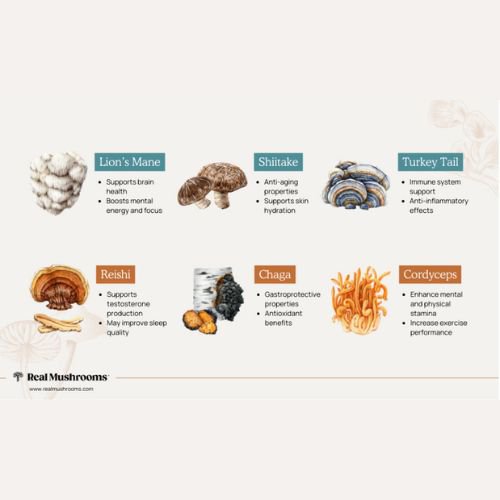
Absolutely!
Herbal supplements can be a great addition to your health regimen, especially when tailored to address specific health conditions.
One potent example is Turkey Tail mushrooms, which have been used for centuries in traditional medicine and are celebrated for their robust health-promoting properties.
According to a report published by the Alzheimer’s Drug Discovery Foundation, Turkey Tail mushrooms offer significant health benefits, including neuroprotective effects due to their antioxidant properties. [13]
Additionally, the polysaccharides in these mushrooms have immunomodulatory effects and are used as adjuncts in malignant growth treatment in Asia.
The safety of Turkey Tail mushroom products has also been demonstrated in randomized controlled trials, where they have been shown to alleviate chemotherapy-related side effects, although their effects can vary based on the preparation used.
Here are some more health conditions where Turkey Tail mushrooms can be particularly beneficial:
Immune Health
Turkey Tail mushrooms are a natural immune booster.
The PSK and PSP in these mushrooms stimulate the immune system, helping your body fight off infections and diseases more effectively.
Digestive Health
Turkey Tail mushrooms are a rich source of prebiotics, which nourish the beneficial bacteria in your gut. This can help improve your digestion and overall gut health.
Malignant Growth Support
A study by the National Library of Medicine shows that the PSK in Turkey Tail mushrooms can support malignant growth treatment.[14] It’s been found to improve the survival rate of malignant growth patients, particularly those with malignant growth in their breast, gastric, and colorectal areas.
How Should I Store My Herbal Supplements?
Here are some general guidelines to follow:
Keep Them in a Cool, Dry Place
Heat and moisture can degrade the active compounds in your supplements over time.
Avoid storing them in humid areas like the bathroom or kitchen. A bedroom or living room, away from direct sunlight, is often a good choice.
Store in Their Original Packaging
Most herbal supplements come in specially designed packaging that helps protect them from environmental factors. These containers are often dark to block out light and have airtight seals to keep out moisture.
Keep Out of Reach of Children
Like any other supplements or medications, herbal supplements should be kept out of the reach of children. This is not only for safety reasons but also because kids might not close the containers properly, exposing the supplements to air and moisture.
Don’t Refrigerate Unless Instructed
While it might seem like a good idea to keep your supplements in the fridge, this can actually introduce moisture, especially when you open the container in a warmer room.
Only refrigerate your supplements if the manufacturer specifically instructs you to do so.
Check Expiry Dates
Herbal supplements don’t last forever. Make sure to check the expiry date on the packaging and use the supplement before this date.
If you notice any changes in color, smell, or texture before the expiry date, it’s best to contact the manufacturer.
Evaluate Herbal Supplements Effectively
Ensure you make the most informed decisions about incorporating herbal supplements into your health regimen. This guide has outlined the key aspects of herbal supplements, from their potential health benefits and safety considerations to tips on selecting high-quality products.
Remember, consulting healthcare professionals and choosing reputable brands are paramount to enhancing your health safely with herbal supplements. Embrace these insights to optimize your wellness journey with confidence.
Definition of Terms
Phytomedicines
Phytomedicines are medicinal products derived from plants and used in herbalism to prevent or treat diseases. They encompass a wide variety of products, including extracts, herbs, and teas. For example, ginger is often used as a phytomedicine to alleviate nausea.
Tinctures
Tinctures are concentrated herbal extracts made by soaking the bark, berries, leaves, or roots from one or more plants in alcohol or vinegar. An example of a tincture is valerian root tincture, commonly used to aid sleep.
Post-Radiation Therapy
Post-radiation therapy refers to the period following radiation treatment, which is used primarily to treat malignant growth. During this phase, patients may receive additional care or treatment to manage side effects and to monitor the effectiveness of the initial therapy.
Kinesiology
Kinesiology is the scientific study of human body movement. It addresses physiological, biomechanical, and psychological mechanisms of movement. Applications include rehabilitation exercises and sports performance analysis.
Synthetic Supplements
Synthetic supplements are man-made vitamins and minerals intended to supplement the diet. Unlike natural supplements derived directly from plant material, synthetic supplements are chemically constructed in a lab. An example is synthetic vitamin E.
Dosage
Dosage refers to the prescribed amount of a drug or a supplement that should be taken at one time or within a given period. For example, the dosage for Ibuprofen can vary, but often it’s recommended to take 200-400 mg every 4 to 6 hours.
Immunosuppressant Drugs
Immunosuppressant drugs are medications that inhibit or prevent the activity of the immune system. They are used to prevent the rejection of transplanted organs and to treat autoimmune diseases. Examples include cyclosporine and methotrexate.
Hemlock
Hemlock refers to several plants in the genus Conium, particularly Conium maculatum, known for its toxic properties. Historically, it was used as a method of execution, including the famous case of the philosopher Socrates.
Autoimmune Disorders
Autoimmune disorders are conditions in which the immune system mistakenly attacks the body’s own cells and tissues. Examples include rheumatoid arthritis, where the immune system attacks the joints.
Antacids
Antacids are substances that neutralize stomach acidity. They are typically used to relieve heartburn, indigestion, or an upset stomach. Common examples include calcium carbonate and magnesium hydroxide.
Bisphosphonates
Bisphosphonates are a class of drugs that prevent the loss of bone mass and are used to treat osteoporosis and similar diseases. They work by inhibiting bone resorption by bone cells called osteoclasts. Examples include alendronate and risedronate.
Immunomodulatory Effects
Immunomodulatory effects refer to any alteration in the immune response, either by enhancing or suppressing it. Certain herbal supplements like Echinacea are known for their immunomodulatory effects, potentially boosting the immune system.
Prebiotics
Prebiotics are compounds in food that induce the growth or activity of beneficial microorganisms such as bacteria and fungi. They are mostly found in fiber-dense foods like bananas, onions, and garlic. They help improve gastrointestinal health and can enhance the immune system.

References
1. Herbal Medicine – Health Encyclopedia – University of Rochester Medical Center (2024) Rochester.edu. Available at: https://www.urmc.rochester.edu/encyclopedia/content.aspx?contenttypeid=85&contentid=P00181#:~:text=A%20product%20made%20from%20plant (Accessed: 3 September 2024).
2. Mushrooms (2020) The Nutrition Source. Available at: https://nutritionsource.hsph.harvard.edu/food-features/mushrooms/#:~:text=An%20often%20under%2Dappreciated%20food (Accessed: 3 September 2024).
3. Turkey tail mushrooms act as nonspecific immune modulators (2022) Uclahealth.org. UCLA Health. Available at: https://www.uclahealth.org/news/article/turkey-tail-mushrooms-act-as-nonspecific-immune-modulators#:~:text=Modern%20research%20confirms (Accessed: 3 September 2024).
4. Torkelson, C.J. et al. (2012) ‘Phase 1 Clinical Trial of Trametes versicolor in Women with Breast Cancer’, ISRN oncology, 2012, p. 251632. Available at: https://doi.org/10.5402/2012/251632.
5. Benson, K.F. et al. (2019) ‘The mycelium of the Trametes versicolor (Turkey tail) mushroom and its fermented substrate each show potent and complementary immune activating properties in vitro’, BMC Complementary and Alternative Medicine, 19(1). Available at: https://doi.org/10.1186/s12906-019-2681-7.
6. Clinic, C. (2024) Herbal Supplements: Why To Check With a Healthcare Provider First, Cleveland Clinic. Cleveland Clinic. Available at: https://health.clevelandclinic.org/herbal-supplements-use#:~:text=%E2%80%9CHerbal%20supplements%20aren%E2%80%99t (Accessed: 3 September 2024).
7. Senchina, D. et al. (no date) Herbal Supplements and Athlete Immune Function -What’s Proven, Disproven, and Unproven? Available at: https://citeseerx.ist.psu.edu/document?repid=rep1&type=pdf&doi=b1fb353343d196036bcb6130414691d59ea7ffa1 (Accessed: 3 September 2024).
8. emhj (no date) Herbal and nutritional supplement use among college students in Qatar, World Health Organization – Regional Office for the Eastern Mediterranean. Available at: https://www.emro.who.int/emhj-volume-21-2015/volume-21-issue-1/herbal-and-nutritional-supplement-use-among-college-students-in-qatar.html.
9. Rashrash, M., Schommer, J.C. and Brown, L.M. (2017) ‘Prevalence and Predictors of Herbal Medicine Use Among Adults in the United States’, Journal of Patient Experience, 4(3), pp. 108–113. Available at: https://doi.org/10.1177/2374373517706612.
10. noble.dana (2023) Do kids need vitamin or herbal supplements? Are they safe? – Mayo Clinic Press, Mayo Clinic Press. Available at: https://mcpress.mayoclinic.org/parenting/do-kids-need-vitamin-or-herbal-supplements-are-they-safe/ (Accessed: 3 September 2024).
11. Herbal Supplements and Kidney Disease (2024) National Kidney Foundation. Available at: https://www.kidney.org/kidney-topics/herbal-supplements-and-kidney-disease.
12. India, U. et al. (2008) ‘Herbal Supplements (Haematanics) and their Interactions with Medications: An Overview’, Ethnobotanical Leaflets, 12, pp. 1078–84. Available at: https://opensiuc.lib.siu.edu/cgi/viewcontent.cgi?article=1177&context=ebl (Accessed: 3 September 2024).
13. Alzheimer’s Drug Discovery Foundation. “Turkey Tail Mushrooms.” Available at: https://www.alzdiscovery.org/uploads/cognitive_vitality_media/Turkey_Tail_Mushrooms.pdf. Accessed September 3, 2024.
14. Dan, A. et al. (2023) ‘Therapeutic Effects of Medicinal Mushrooms on Gastric, Breast, and Colorectal Cancer: A Scoping Review’, Cureus [Preprint]. Available at: https://doi.org/10.7759/cureus.37574.
15. National Kidney Foundation. (n.d.). Herbal supplements and kidney disease. National Kidney Foundation. Retrieved September 16, 2024, from https://www.kidney.org/kidney-topics/herbal-supplements-and-kidney-disease
The post What to Know Before You Buy Herbal Supplements appeared first on Real Mushrooms.

